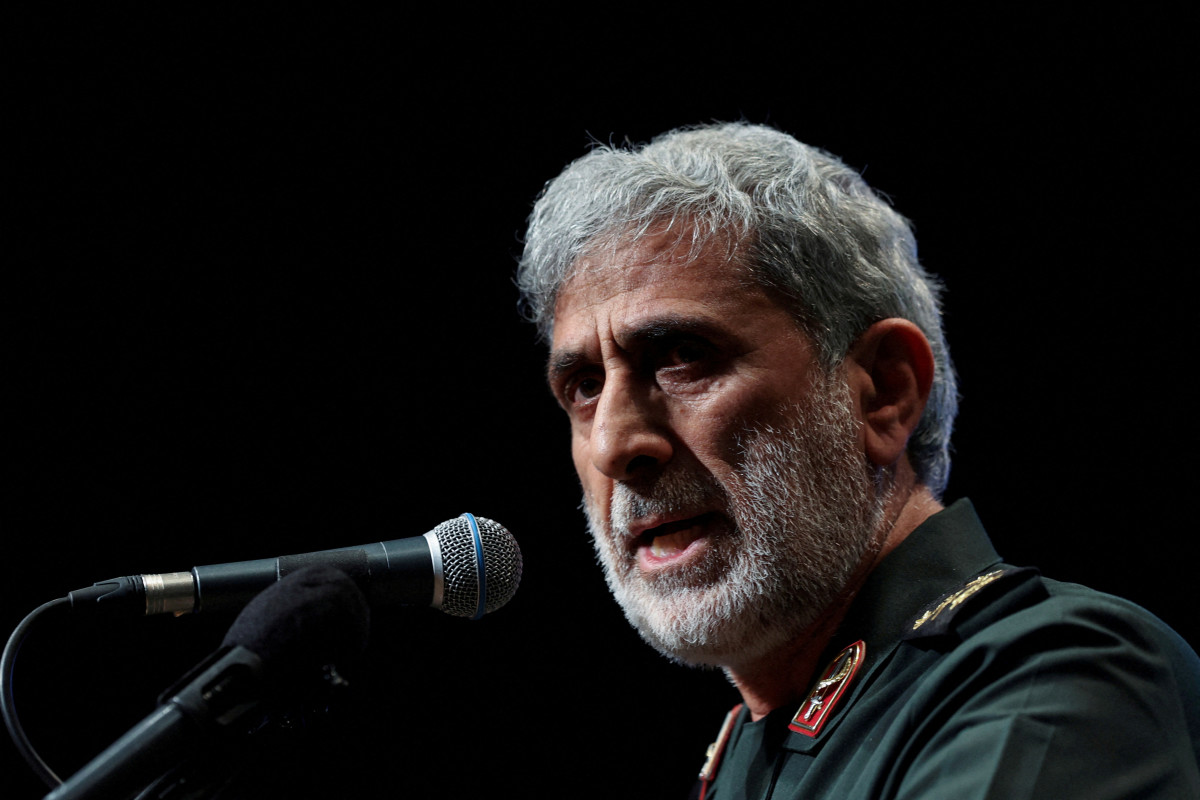The newspaper “Al-Arabi Al-Jadid” reported that Iraqi sources say that the commander of the Iranian Quds Force, Ismail Kaani arrived in the capital Baghdad on Wednesday evening, to discuss the developments of the change in Syria and the fall of the Bashar al-Assad regime. The sources stated that “Kaani met with a number of leaders of armed groups, to discuss developments in the new situation in Syria, and the Israeli entity’s insistence on attacking sites and making progress in occupying parts of Syria”, and added that “Kaani did not meet with all the Shia leaders as he always does, but contented himself with the meeting with a number of faction leaders”.
The sources, who asked to remain anonymous, added that “some of the leaders of the factions informed Kaani of their commitment to Iraq’s neutral position in the current crisis, and that they do not want to get hung up on the opening of new battle fronts and are waiting to see how things will turn out.”
“There was talk of strengthening Iraqi ground defenses, protecting the borders, and strengthening national security in the country,” the sources said, noting that: “The leaders of the Iraqi factions emphasized the interest of the Iraqi people, and avoiding vulnerability in Iraq by Israeli or American attacks, which could lead to confusion in the security situation or the expansion of unrest and chaos in the political situation in Iraq, especially now that a process of preparation for a new political phase is underway, when the election date approaches.”
Additional sources revealed that since last Saturday, all Iraqi factions have withdrawn from Syria and returned to Iraq, for the first time since they joined the regime against the Syrian opposition in 2011, while settling along the border.
The Iraqi Hezbollah group stated that it is following the situation in Syria and is looking for understanding on the basis of the development in Gaza. The Iraqi government spokesman, Bassam al-Awadi, emphasized that Iraq does not intend to interfere in Syria and supports the elections of the Syrian people.
In the message delivered, it is written that “the nature of the terrorist organizations such as al-Nusra and ISIS will not change, despite their attempts to present themselves as humane in front of the cameras,” according to the sources, adding that “the countries that support these groups are the ones who bear responsibility for any attack against the believers of Ahl al-Bayt or Violating their sanctity.”
The Iraqi government spokesman, Bassam al-Awadi, described the developments on the ground in Syria as a “surprise”, and said that: “His country will respond to every positive step on the part of Syria with two positive steps”, while again emphasizing Iraq’s non-involvement in Syrian affairs. He added: “The Iraqi government does not intend to interfere in Syrian affairs. Iraq will not support one side over the other, and it supports the elections of the Syrian people. In addition, he warned that “exposing the Syrian minorities to danger will affect the political face in Iraq.”
According to the newspaper, most experts on Iraqi and regional political affairs agree that Iran has lost an important front from the “axis of resistance” supported by Tehran, and that the future of Iraq may be affected by this. Therefore, Iran strives to prevent further losses and wants to maintain a strong relationship with Baghdad, especially because it has become the only defense fence between Iran and the “Israeli occupation”.
Political analyst Alaa Musafa told the Arab newspaper: “What happened in Syria was an international conspiracy with regional participation that quickly and suddenly led to the fall of the Assad regime, when it is understood that the process of overthrowing the regime was organized.”
He explained to “Al-Arabi Al-Jadid” that: “The jihadist organizations that overthrew Bashar al-Assad are to some extent similar to the Taliban, and we noticed that they call for the building of a state without revenge and without considerations of revenge.”
Musafa added: “The Iranian concern about what happened is legitimate, because it has lost one of the most important pillars in the axis of resistance, and therefore it wants to understand the future situation, especially since the axis is experiencing clear obstacles.”
In conclusion, he said: “What is important to Iraq is the security of its borders, and they are already secure, with a solid security wall and sufficient capabilities for surveillance and espionage, while the role of the Iraqi factions in Syria is over, and they no longer have any influence or ambitions on Syrian territory in the future.”
